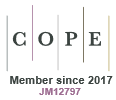Changing fuel management strategies - The challenge of meeting new information and analysis needs
International Journal of Wildland Fire
10(4) 267 - 275
Published: 2001
Abstract
This paper was presented at the conference ‘Integrating spatial technologies and ecological principles for a new age in fire management’, Boise, Idaho, USA, June 1999Attitudes and policies concerning wildland fire, fire use, and fire management have changed greatly since early European settlers arrived in North America. Active suppression of wildfires accelerated early in the 20th Century, and areas burned dropped dramatically. In recent years, burned areas and cost of fires have begun to increase, in part due to fuel buildups resulting from fire suppression. The importance of fire as an ecosystem process is also being increasingly recognized. These factors are leading to changes in Federal agency fire and fuels management policies, including increased emphasis on use of prescribed fire and other treatments to reduce fuel loads and fire hazard. Changing fire management strategies have highlighted the need for better information and improved risk analysis techniques for setting regional and national priorities, and for monitoring and evaluating the ecological, economic, and social effects and tradeoffs of fuel management treatments and wildfires. The US Department of Interior and USDA Forest Service began the Joint Fire Science Program in 1998 to provide a sound scientific basis for implementing and evaluating fuel management activities. Development of remote sensing and GIS tools will play a key role in enabling land managers to evaluate hazards, monitor changes, and reduce risks to the environment and the public from wildland fires.
https://doi.org/10.1071/WF01027
© IAWF 2001


